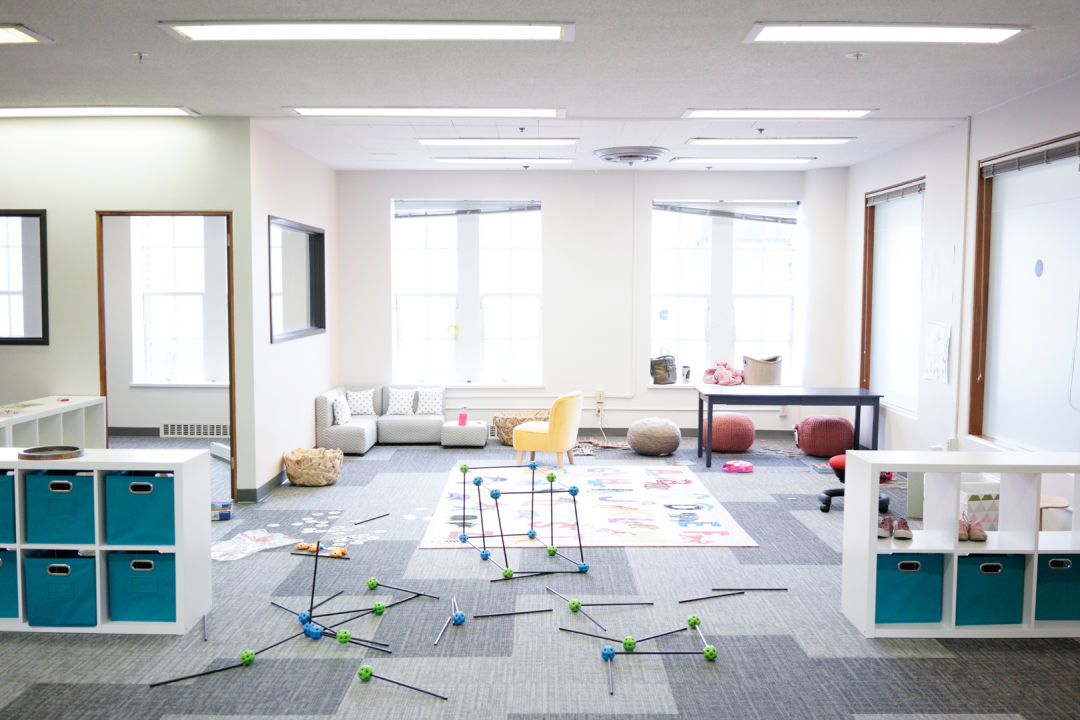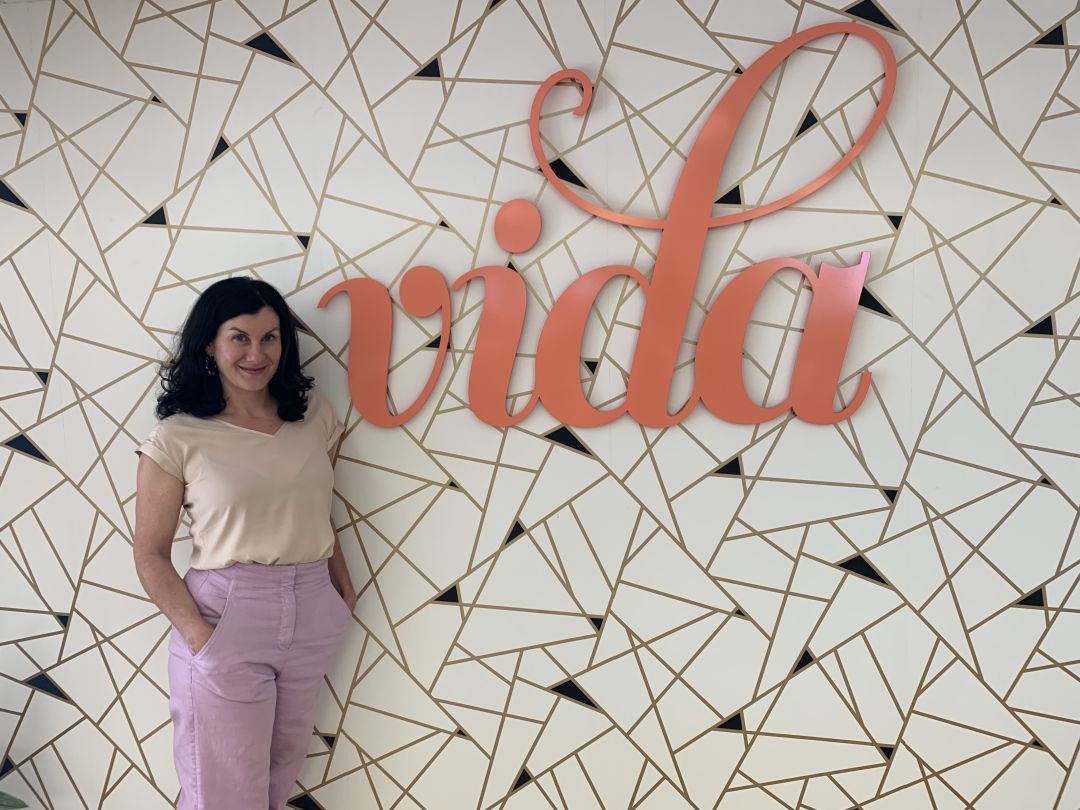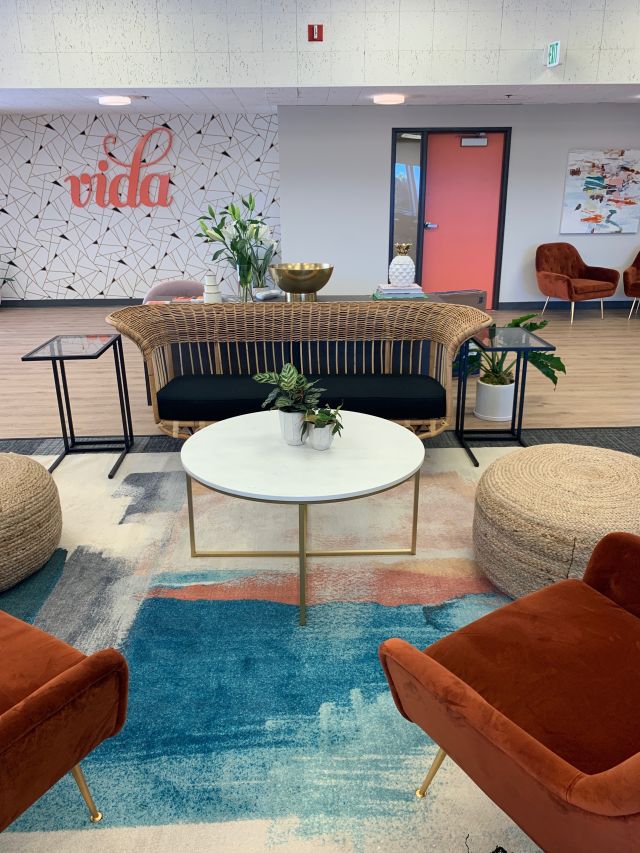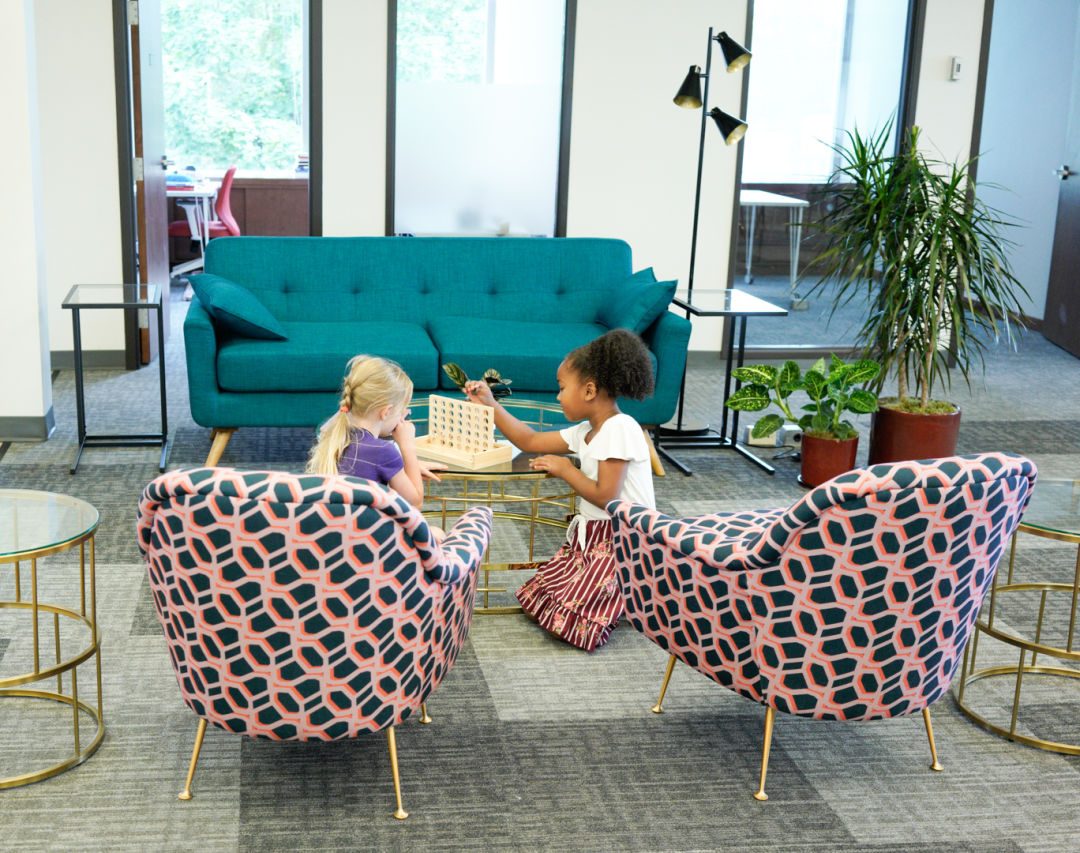New Portland Coworking Space Wants to Set Us Free from the Traditional Work-Life Separation

Image: Courtesy VIDA
Coworking spaces are nothing new to the Portland business landscape. The flexible shared spaces are popular with freelancers, entrepreneurs, and start-ups, who need some of the amenities of traditional offices without the leases.
But, according to at least one Portlander, many coworking spaces still perpetuate a male-centric work-life separation. Melanie Marconi, who moved here from California in 2012, couldn’t find a space to work that allowed her to take care of her young daughter and, she says, live her best life.
As her business expanded and her daughter got older, Marconi’s growing staff were working out of their living rooms. “It all became too much,” she recalls. “I needed a coworking solution. As I was touring the options around town, they just weren’t built for the type of life that I was living. They didn’t meet my needs as a woman entrepreneur and a mom trying to live a healthy life and accomplish my goals.”
So Marconi decided to change the game herself. Her vision: Vida—which bills itself as a “curated coworking community”—opened its doors on July 1 in the Jantzen Building an NE Sandy and 19th. (We recently wrote about The Riveter, another female-focused coworking space that opened this spring.) “There are very few places to work in Portland—and in the country—that are designed with women’s lives in mind,” Marconi says. “VIDA’s goal is to change that.” We sat down with Marconi to talk about what Vida is and how it might help entrepreneurs.

VIDA founder Melanie Marconi
Image: Courtesy VIDA
How did this come to fruition?
A bit of the genesis of Vida is that I did all of this for myself after my daughter was born, and it worked for me so I’m trying to replicate it for others on a bigger scale. I’m a single mom, and it was very overwhelming to have a young child and run my business remotely. I had no time for the gym, and I gained 40 pounds. I wasn’t taking care of myself; I felt terrible; I wasn’t sleeping. There was so much going on!
One day I just stopped, and I had this moment of self-promotion. I took a weekend to sit down and draft a whole life plan, and then I implemented it. As soon as I got things into a rhythm and on a schedule with my daughter, my health, and my business, it really changed my life. And I want to create the same track for our members.
I think that women, especially high-performing women in the workplace, are conditioned to just get it done, take care of it, and work it out—and we usually do—but if we can create an atmosphere here at VIDA where asking for help is a community value, we can become so much more productive and happy. I want to move away from the traditional coworking space and make VIDA into a kind of work-life community center.
What is your opinion on the state of the coworking industry?
What we’re seeing now, I think, is coworking spaces are becoming highly niche—from technology companies and small-business incubators to women-focused spaces and design institutions. Companies working this way can identify their business community and work more efficiently to design for their market. I guess we are capitalizing on that trend, too: we try to see what the lives of our potential members look like and offer a space to fulfill those needs.
In the past two years since I began building VIDA, occupancy and membership rates continue to rise along with the number of coworking spaces available. I think a big part of it is that even traditional companies and employers are getting creative with how they allow employees to work, from working remotely to having access to spaces like this one. We have a part-time membership option, and I think a lot of people utilize that as a kind of community center membership to have a space to do all the other things as well. I think we’ll be seeing that more in the future, utilizing these spaces to fulfill the rest of your life outside of work.

Image: Courtesy VIDA
Portland already has a rather crowded coworking market. What is VIDA bringing to the table?
Many things, but the biggest is our commitment to the community atmosphere, which is where most other coworking spaces fall flat. Across the country, coworking spaces are promoted as community environments, but I think there has been a real deficit on investment in actually creating a community that people want to engage with on a regular basis. I think people assume that if you just put a bunch of people in a space, it will actually happen, but what we’ve seen is that’s not the case. And you’ll see that in turn-over rates. If you don’t invest time, money, and attention into actually creating a community that flourishes, it’s just not going to happen.
We are working diligently both within the company and out in the office space to make it feel like a family. We have a robust set of amenities that are there to support a full life. We are the only coworking space that offers all of these benefits in one place. And the only one with on-site drop-in child care.
Why would both men and women want to be there?
There are very few places to work in Portland—and in the country—that are designed with women’s lives in mind, and Vida’s goal is to change that. One of the mainstays for this space is to help women transition from a traditional workplace mode to an entrepreneurial one. I think women are getting more creative about how they make money so they can be more flexible. With flexibility comes other challenges, though, especially with time management in things like child care. We are trying to smooth out that gap.
That being said, I think every human being can benefit from this kind of model. It’s just a different perspective and a different set of amenities. It’s not going to appeal to all women, just as it won’t to all men—and we do have some male members—but I think there is a crossover that can be attractive to all people because traditional workplaces, while they are getting better, are not designed to support full lives.
What is the potential outcome of this new perspective shift from traditional male-centric workplace models to female-designed and -oriented models?
Honestly, I think it’s world-changing. If you can get a group of interesting, dynamic individuals together to be able to bounce ideas off of each other, there will be a plethora of new ideas afoot. Not only that, but I think women, in particular, are super clever; they use their time well and can get so many things done. We’re raised to multitask and do all these things like go to school and have two jobs, cook dinner and take care of our kids, all of this high emotional stuff. If you can open up an extra 30 minutes in a day for things like yoga or thinking about your long-term goals, making a new friend or going for a run, seeing a doctor—getting everything done in an easy way and opening up more time to do other beneficial things, I think that it’s just magical.

Image: Courtesy VIDA
What’s next?
I think there is a real need for this type of model all across the country, so we are going to start in Portland and expand from there, mostly along the West Coast. We have plans to open two more locations here and in Vancouver, Washington, very soon. Then we’ll look to the surrounding suburbs. We are going to do 12 more Vida locations in the next three years, and hopefully get to 25 locations in seven years.




